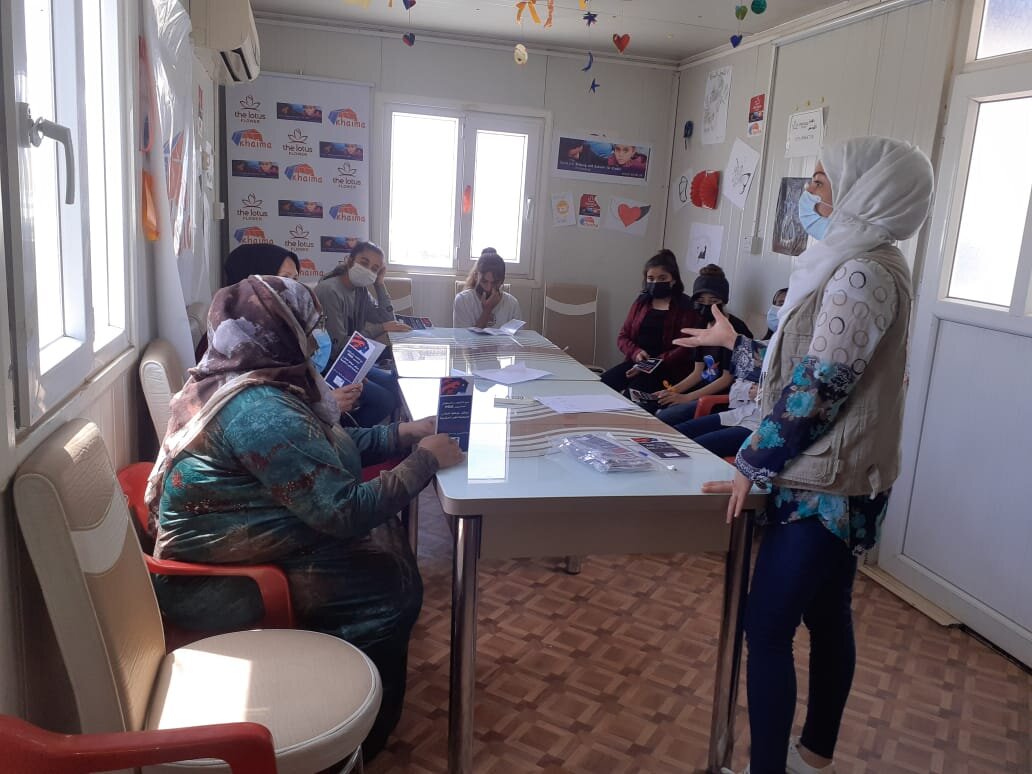Our second PSEA project gets underway
The Lotus Flower recently launched a second major awareness scheme to help prevent sexual abuse and exploitation within the camps and communities where we work.
Targeting multiple groups and genders, our four-month PSEA (Prevention of Sexual Exploitation and Abuse) project is underway at our three centres at Domiz 2, Essyan and Rwanga camps, and aims to dramatically raise awareness of abuse of women and girls, as well as improve inferior reporting mechanisms.
As part of the initiative, we are also conducting PSEA workshops for government institution employees in Duhok, in cooperation with the Directorate of Combating Violence Against Women. The project is kindly being funded by SEZ and the Federal State of Baden-Württemberg in southwest Germany.
The project follows our initial PSEA project, which ran as a pilot from October-December 2020. It began with an assessment of SEA awareness and support, which found that 76% of respondents had no idea what SEA was. In addition, 63% said they believed cases of SEA had increased during the pandemic.
Crucially, as well as targeting women and girls, the project engages men and boys in the process, in order to change traditional social norms that contribute to SEA. We aim to reach up to 800 individuals through community outreach and weekly workshops – including for around 100 government employees.
Unfortunately, cases of sexual exploitation and abuse have risen sharply during the Covid-19 crisis – partly due to isolation, job losses and a critical shortage of resources. But in spite of the increase in cases, SEA remains desperately under-reported due to fear of stigmatisation and rejection by family and the wider community. There is also a lack of legal support to enable recriminations.
Hopefully, this project will really make a difference in protecting many more vulnerable women and girls.






